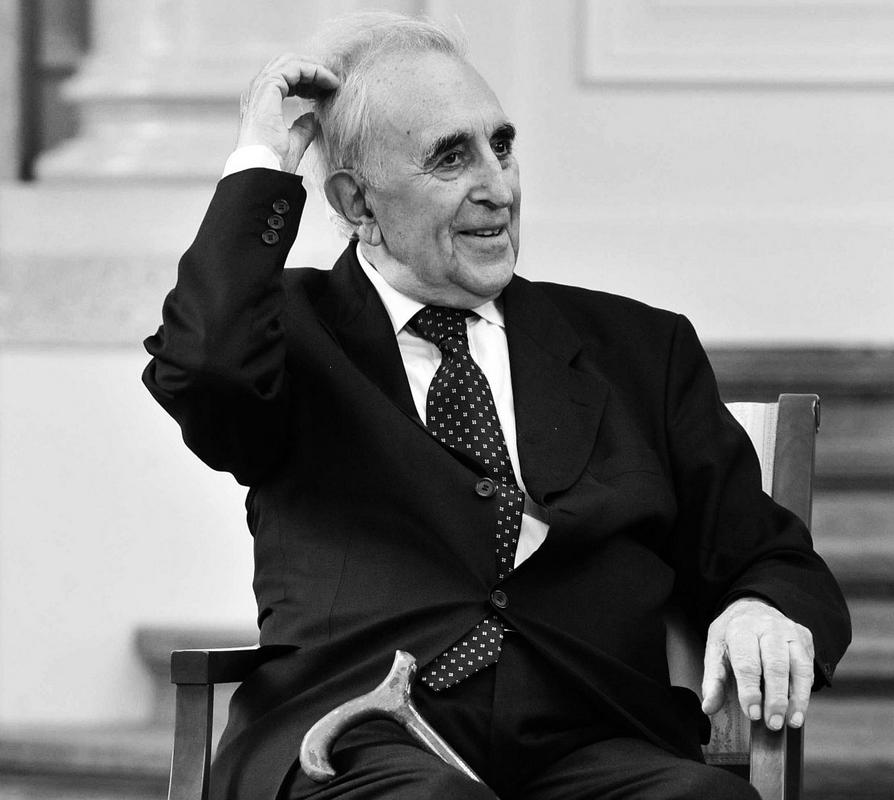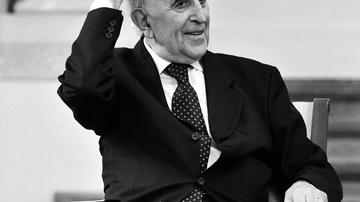During the last days a lot could be read and heard about his commentator's and reporter's work, about his extensive sophistication, about his travels all over the world, and his masterful understanding of foreign politics. Nobody knew as much, or had experienced as much as Jurij. Nobody's thoughts were as comprehensive and profound as his. He was capable of reaching far into the past, to the beginning of the twentieth century; he understood the world thinking patterns, he knew the reasons behind happenings, and he was capable of estimating what would happen in future. His importance to us, his co-workers, was enormous. He broadened our horizon with his stories and his observations, he gave us context into which we were able to intertwine our attempts to understand and evaluate world events – and which were, compared to his, rather weak.
Some of us were lucky enough to share with him a modest, shabby office on the first floor of TV Slovenija building. Every morning, as soon as Jurij opened his daily Herald Tribune and Guardian, we lowered our voices during telephone conversations – not because he would demand it, but out of respect for the man whose reading differed, whose understanding was enhanced by boundless knowledge and an analytical mind. But our presence never bothered him – he liked the bustle and the journalistic activity surrounding him. He was one of us, although he started worked for this TV station before many of us were born. We kept asking him for help, and he never declined. He never told us how to do it, and yet we were constantly making plans together for new articles, interviews, stories, and countless International horizons.
The exchange was mutually beneficial, although in truth we got much more than we gave. When he finally gave up his legendary typewriter, we learned together how to use Word, and how to save files. The same man who during his years as a correspondent in New York and London communicated with his editorial office by telefax, in his advanced age discovered the mysterious and infinite dimensions of the world wide web, including the old recordings of great classical music events. It is true, the famous conductor Otto Klemperer in the fifties of the previous century conducted the Beethoven's Ninth symphony in a different manner than the great Furtwangler! I know that because Jurij told us. And all colleagues from our office agreed that the most beautiful summer rain falls in London, and that Emma was Jane Austen's most accomplished novel.
It was Jurij who taught us the most tasty way to prepare fish, and it was Jurij who told us that the most suitable meat for children was tender veal. He also told us how to cook it, so that children would get healthy and tasty meals, although their parents have tiring jobs. When a question was posed, Jurij leaned slightly back in his chair, took off his reading glasses, smiled and told us a story. That's the image of Jurij that will remain with us forever. This life, he often said, was everything we had.
Ksenija Horvat Petrovčič, managing editor of TV Slovenija IP; translated by G. K.


























































